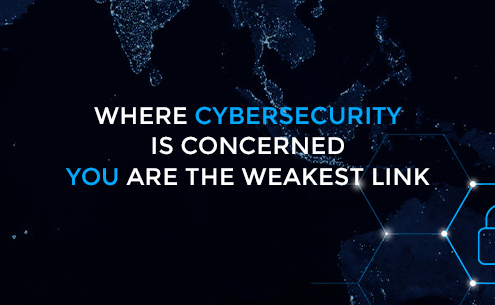 https://grcsolutions.com.sg/wp-content/uploads/2025/02/shutterstock_2187470243.jpg
667
1000
Kim Ramsay
https://www.grcsolutions.com.sg/wp-content/uploads/2023/07/grc-logo-header_white_tangerine.svg
Kim Ramsay2025-02-19 13:22:232025-02-19 13:36:38Singapore Announces Expanded Support for Training & Workforce Development
https://grcsolutions.com.sg/wp-content/uploads/2025/02/shutterstock_2187470243.jpg
667
1000
Kim Ramsay
https://www.grcsolutions.com.sg/wp-content/uploads/2023/07/grc-logo-header_white_tangerine.svg
Kim Ramsay2025-02-19 13:22:232025-02-19 13:36:38Singapore Announces Expanded Support for Training & Workforce DevelopmentWe won Three Platinums and a Diamond at LearnXLIve! 2022.
For our other awards, look here.

Our team was keen to utilise their status as compliance training professionals with diverse perspectives on and experiences of adult education to highlight the effect that our workplaces can have, both positive and negative, on mental health, and the role we can all play to support each other’s wellbeing.
Early in March, the team came together to reflect on the importance of mental health and wellbeing training. They had already developed complimentary training on mental health awareness during the first days of the COVID-19 pandemic, when illness, lockdown and a host of other issues, including the mass migration of the global workforce to remote-working environments, had created an atmosphere of high anxiety and uncertainty about the future. This module formed part of our free Working from Home series and was designed to reflect the specific historical moment of the pandemic.
But the team was keen to create a longer, more enduring piece of training that was dedicated to raising awareness of potential mental health issues in the workplace, wherever and however such workplaces are defined, be they physical offices and factories, or decentralised remotely in people’s own homes.
The Project
The Content Team gave itself one month to develop training from scratch. The project would draw on several of our writers, editors and designers to research, write and build this course online, while drawing on the diversity of other team members’ aforementioned expertise to review the course through a variety of lenses, including perspectives on the law, psychology and general design accessibility.
The legal researchers in our team would be asked to invoke the relevant laws, including the Work Health and Safety Act in NSW, that made the management of mental health and safety risks a requirement in the workplace. (Under work health and safety laws, such as the Work Health and Safety Act in NSW, employers are required to actively manage health and safety risks in the workplace. This now includes risks to mental health as well as physical health.) Our writer-designer who has a background in psychology was tasked with steering the project content towards the key concepts that needed to be covered by the training. Our editor and sub-editor would need to ensure the training content utilised a simple, unassuming and accessible language to capture all the legal and psychological dimensions of the training, without alienating or intimidating learners. And our designers would then develop an online training experience that harmonised with its subject matter, breaking down the content into user-friendly visuals and interactions.
The Content Manager was tasked with scheduling discrete phases of individuals’ work as well as active points of collaboration during which team members could come together to review the progress of the project. The team used Asana’s online dashboard to monitor the completion of tasks. It created a specific conversation thread on Microsoft Teams to facilitate updating each other on any challenges, complexities or other considerations that could impact the quality or completion of the project.
Utilising its adult education expertise, the team was committed to creating a training experience that was no longer than 20 minutes in duration. While team members wanted to develop something that would give learners a strong foundation in the concepts of mental health, they were wary of taxing learners with too much information and of turning the training into an overly esoteric, academic exercise. For the training to be considered successful, it was felt that it should use language that tripped lightly over the concepts while hinting at the depth and importance of the content covered. The training also needed to be stridently, resolutely, practical, focusing on tips that learners could apply instantly. It needed to feel ‘real’ to learners without offending or alarming them, or without inducing a visceral or painful reaction from them in relation to what could be sensitive content.
The Training
The team’s united aim was to create training that communicated issues surrounding mental health in the workplace in a way that engaged and empowered learners to know how to act if they encounter someone who is experiencing psychological distress – or if they might be experiencing psychological distress themselves. But the researchers and writers in our team were also keen to avoid creating a situation in which learners might think they were qualified to replace medical professionals or other forms of support.
The training articulates the World Health Organisation’s definition of mental health as a state of wellbeing in which we can realise our own abilities, work productively and contribute to our communities.
It builds learners’ awareness of the key indicators in psychological distress, including potential signs of depression or anxiety. This means that learners discover not only how to help others but to be self-aware:
Be gentle on yourself
Consider whether your thoughts, emotions, behaviours and attitudes to your work and relationships may have changed recently.
If you are experiencing any mental health issues, be gentle on yourself. Recognising the signs is part of the first step towards addressing the issues.
As the training continues, it elaborates further about existing resources to seek out or recommend to people who may be experiencing psychological distress. And it communicates the sensitivities and nuances involved in having conversations about mental health in the workplace, from talking to an employer to the various issues of maintaining confidentiality and obtaining consent before relaying other people’s communications of their mental health challenges to a third party. It balances this respect for individual privacy with the observation that we all have a legal responsibility if we suspect that a person may be in danger of harming themselves or others: “Everyone has a legal duty of care to act if they think there is a risk that a person will harm themselves or others.”
Roll Out
Mental Health in the Workplace successfully launched and instantly became available to over 21 organisations and several hundreds of learners nationwide, including churches and schools. It was reviewed and endorsed by accessibility expert Chris Pycroft.
GRC Solutions is pleased that we can now round out our library of compliance training offerings with this important online course, and that our learners can see the significance of mental health as a priority in their work and personal lives, and for their employers to see it as a burgeoning compliance issue.
Details of our Mental Health and Wellbeing course are here
See what else we won here
Our previous LearnX awards are mentioned here











